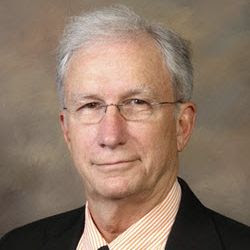In 2018, a dear colleague and I accompanied a group of nine students on a three-week visit to N’Zérékoré in the West African country of Guinea.
This unforgettable experience, which included a week’s prior preparation and a final week of debriefing on campus, was part of a program that my university calls Mercer on Mission (MOM).
Designed as a service-learning course immersing us in the culture of a developing country, it is a signature program of Mercer. We had led a group to Senegal a few years previously to work with the farmers in the Senegal River Delta. In both MOM trips, we studied West African literature, history, and culture in two courses that my colleague and I offered.
But much of our time was spent living with the students and working with the Senegalese farmers or tutoring the Guinean children at Home of Hope, an orphanage founded by our former student, Samuel Johnson.
We learned to eat with our fingers from a common bowl and drink hot mint tea in the cool shade, even sweeter than the iced tea back home in Georgia! This intimate level of relationship made lifelong friends of all the participants. Some of the students even joined me for morning devotional.
Spending time with students outside the classroom is an excellent opportunity to have a lasting redemptive impact on their lives. After all, God calls us to be teachers for His own purposes, which include both forming young lives for Him and being formed by them.
Not all universities have a program like Mercer on Mission, but all Christian professors can make opportunities outside the classroom to get to know their students as whole human beings rather than entries in the roll book. I also have fond memories of taking students on field trips to a monastery or a museum or inviting them over for a home-cooked meal.
The great Dietrich Bonhoeffer wrote a wonderful book called Life Together. It grew out of the experience of establishing an underground seminary in protest of the official German church’s collaboration with the Nazis. He lived with the seminarians in a communal setting and taught them in that context. His constant presence amounted to what is now called “incarnational ministry,” which entails moving into the oppressed community to minister holistically in a shared life.
Our Lord Jesus, the Master Teacher, invited His students to live with him,
travel with him, and share meals with him. One of the reasons they were able to perpetuate his memory is that, according to John, “We proclaim to you the One who existed from the beginning, whom we have heard and seen. We saw Him with our own eyes and touched Him with our own hands” (1 John 1:1). “Of His fulness have all we received” (John 1:16).
We don’t all have to go to West Africa, but we can all ask the Lord how He would like us to share life with our students.
John Marson Dunaway
Professor Emeritus – French
Mercer University

